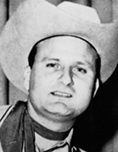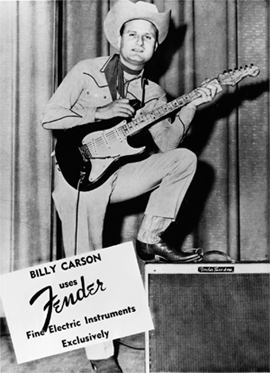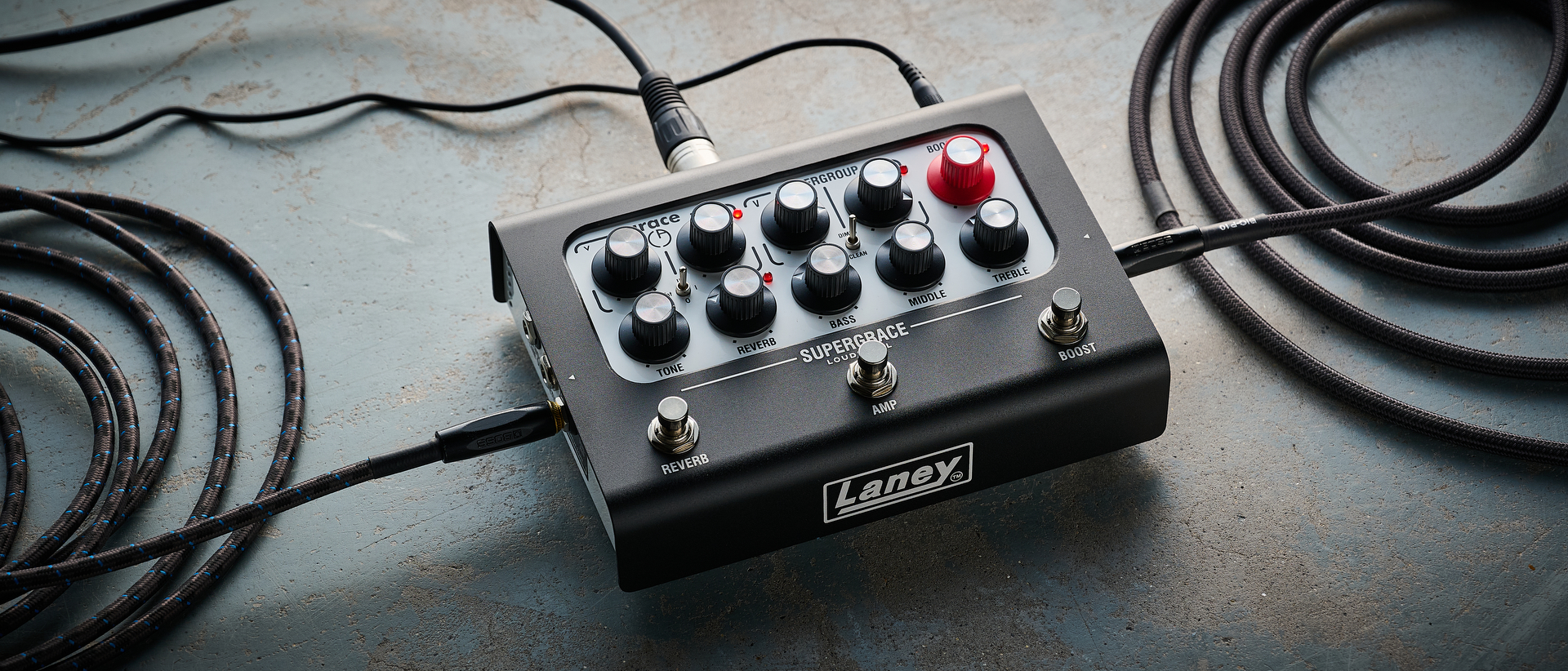Fender Mourns Loss of Bill Carson
All the latest guitar news, interviews, lessons, reviews, deals and more, direct to your inbox!
You are now subscribed
Your newsletter sign-up was successful


A statement issued by Fender Musical Instruments:
The entire Fender family is greatly saddened to learn of the Feb. 15 passing of one of its own from the very beginning, Bill Carson.
Carson holds a very special place in Fender history and hence in the history of popular music as one of the fathers of the Stratocaster guitar. It’s often said that Leo Fender designed the instrument specifically for Los Angeles-area Western Swing guitarist Carson, a colorful Stratocaster “test pilot” who suggested many of its groundbreaking design elements. Carson wasn’t thrilled, for example, with the bruises caused by having the plank-like body of his Telecaster guitar dig into his ribcage several hours a night at gigs, so he suggested to Leo Fender that his follow-up guitar incorporate “body contours” that would make the instrument more comfortable to play and “wear.” Carson famously remarked that the new instrument should fit the body “like a well-tailored shirt.”
The Fender Family and electric guitar aficionados alike know him from the famous ’50s-era black-and-white “cowboy photo.” There’s Bill Carson in his cowboy hat, western shirt and boots; a cowboy scarf knotted around his neck. He’s beaming at the camera and cradling a new kind of guitar called a Stratocaster, with one boot perched cockily atop a Fender Twin amp. The inset reads, “Billy Carson uses Fender Fine Electric Instruments Exclusively.” It’s a classic piece of Fender history; of electric guitar history.
“Once, when I was listening to Bill play a Stratocaster, it really hit me what the whole thing was about,” said Mike Lewis, Fender vice president of product marketing. “He played it like a steel and it sounded like a jazz box—it was amazing. The Stratocaster was built for Western Swing music—you have to remember that what we use it for now didn’t even exist back then—and here was one of those guys, Bill Carson, the real deal, playing that kind of music on the guitar that was built specifically for that music. It just sounded so big and full; it was amazing.”
Carson enjoyed a long and varied career with Fender from the time he first walked into the Fullerton, Calif., factory in 1951 and Leo Fender himself walked up to him and asked him what he wanted. Carson simply wanted one of those unusual new Telecaster guitars and an amp; what he got was a legendary career that spanned 40 years.
Beginning as a part-time assembly worker and field tester, Carson went on to play a vital role in designing, building and selling Fender guitars. At various periods in the company’s history he served as supervisor for guitar production, director of artist relations, district sales manager and Southeast region national sales manager.
All the latest guitar news, interviews, lessons, reviews, deals and more, direct to your inbox!
Somehow though, merely listing Carson’s accomplishments and noting his milestones with the company doesn’t quite do him justice …
Nobody who knew Bill Carson will ever forget him, because the man made quite an impression—in addition to being a fine guitarist, he was riotously funny and unabashedly outspoken. He enjoyed a lifelong love of gardening that resulted in—and we’re not making this up—his deliberate and successful 1990 bid to be listed in the Guinness Book of World Records as cultivator of the world’s largest watermelon (a whopper—262 lbs.), a record that stood for 16 years. He was ornery, and he loved a good prank. He was “hauled off to the pokey” after a 1953 Oklahoma City ballroom tussle in which he bit the ear off a drunken fireman who was putting the moves on Carson’s wife. He was an avid flier who had his own Super Kitten single-seat airplane, although he had a notorious disdain for cats. He loved to fish. His language could be, shall we say, colorful. He loved children and took an active interest in their welfare.
In short, Bill Carson could be a handful. And everybody loved him.
He was born Billie Rae Carson on July 8, 1926, in Meridian, Okla. He spent his rough early years in Amarillo, Texas, and was captivated by music from an early age, teaching himself to play mandolin at age 11. Carson soon took up guitar, and by his late teens had become an accomplished Western Swing guitarist. He moved to Southern California, and from 1951 to 1957 played guitar in the Western Swing bands of artists including Hank Thompson, Noel Boggs, Spade Cooley, Billy Gray, Wade Ray and Lefty Frizzell.
It was during this period that he began his long association with Fender, and while Carson served in many roles with company over the ensuing decades, he will forever be inextricably linked with the development of the Stratocaster, which debuted in 1954 and subsequently became one of the world’s most popular, successful and enduring guitar designs.
Carson left professional music in 1957 to work full-time at Fender, first in guitar construction and then as guitar foreman, supervisor and plant manager. In the mid 1960s, he established and directed the first Fender customer service centers and became the company’s first director of artist relations. Carson moved to Nashville in 1967, setting up that city’s Fender artist relations center, which he directed until 1977, and becoming a district sales manager. From 1977 to 2001, he held positions in Fender’s marketing and sales management.
A 2004 Guitar One magazine feature placed Carson among the top 50 stars to popularize the Stratocaster; a list that also included Eric Clapton, Jimi Hendrix, Jeff Beck, Buddy Holly and others. At the Christie’s Fine Musical Instruments auction in New York on Oct. 13, 2006, Carson’s personal 1959 Fiesta Red Stratocaster sold for a whopping $66,000.
Bill Carson is survived by his wife of 30 years, Susan, who also retired from Fender as a district sales manager; a son, Scott Carson, of Orange County, Calif.; a daughter, Cindy Colyer, and grandson, Chris Cole, both of Nashville; a brother, Jim Ivy, of Longview, Texas; and several nieces and nephews.
A private family service is planned.
In lieu of flowers, memorials may be made to the Monroe Harding children’s home, 1120 Glendale Lane, Nashville, Tenn., 37204 (615.298.5573; www.monroeharding.org); Mercy Children’s Clinic, 112 Ninth Ave. South, Franklin, Tenn., 37064 (615.790.0567; www.mercychildrensclinic.org); or to the children’s welfare charity of your choice.
The entire Fender family worldwide extends its sincerest sympathy and most heartfelt condolences to the family and friends of Bill Carson, without whom Fender certainly wouldn’t be what it is today.
Since 1980, Guitar World has brought guitarists the best in-depth interviews with great players, along with exclusive lessons, informative gear reviews and insightful columns that help guitarists grow and excel on their instrument. Whether you want to learn the techniques employed by your guitar heroes, read about their latest projects or simply need to know which guitar is the right one to buy, Guitar World is your guide.

